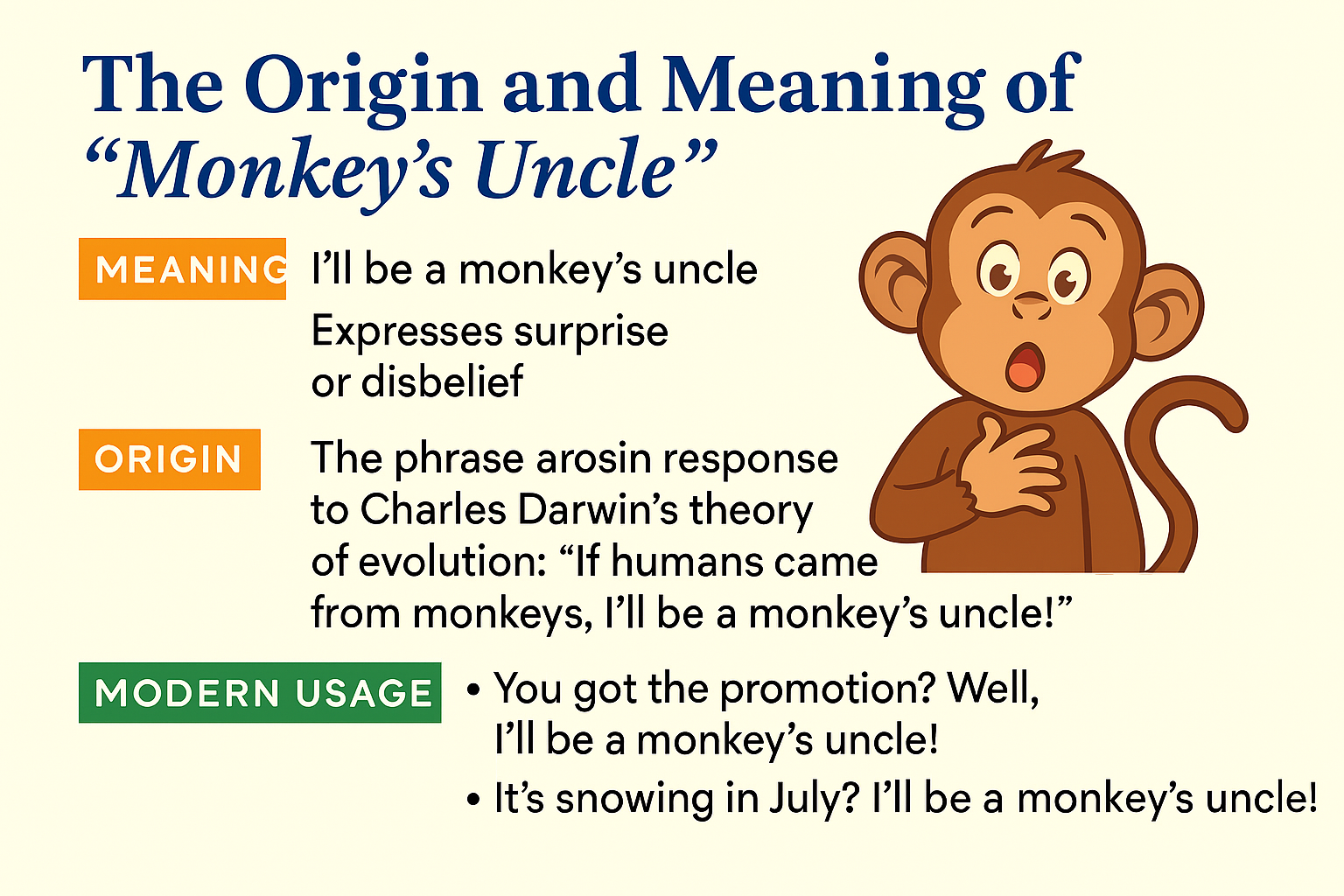Summary
“You got the promotion? Well, I’ll be a monkey’s uncle!”
Origins of the Phrase
The phrase dates to the late 19th and early 20th centuries. It is closely tied to the controversy surrounding Charles Darwin’s theory of evolution, a significant period in the History of science. When Darwin published “On the Origin of Species” (1859) and later “The Descent of Man” (1871), the idea that humans descended from apes shocked many.
Creationists sarcastically coined the phrase:
“If humans came from monkeys, then I’ll be a monkey’s uncle!”
Historical Anecdotes
- Darwin’s Theory Backlash
In the late 1800s, newspapers and pamphlets ridiculed Darwin’s ideas. The phrase “monkey’s uncle” appeared in satirical cartoons, often depicting scientists as monkeys or apes, mocking those who supported evolution and highlighting the controversy surrounding Darwin’s theory. - Scopes Monkey Trial (1925)
During this landmark trial in Tennessee, which challenged laws banning the teaching of evolution, the phrase resurfaced in headlines and courtroom banter. Reporters used it to highlight the cultural clash between science and traditional beliefs, with the words serving as a symbol of the ongoing debate over evolution. - Pop Culture Boost
The idiom gained mainstream popularity through entertainment: - 1948 Three Stooges short film titled I’m a Monkey’s Uncle
- 1965 Disney movie The Monkey’s Uncle, featuring Annette Funicello and The Beach Boys
These appearances cemented the phrase as a humorous expression rather than a theological jab.
Modern Usage
Today, “I’ll be a monkey’s uncle” is rarely tied to debates about evolution. Instead, it’s used in everyday speech for unexpected events:
-
“It’s snowing in July? Well, I’ll be a monkey’s uncle!”
-
“You finished that marathon? I’ll be a monkey’s uncle!”
Why It Endures
The phrase persists because it’s colorful, humorous, and easy to remember. What began as a sarcastic jab at science has now evolved into a playful way to express surprise, a testament to the ever-changing nature of language and culture.
